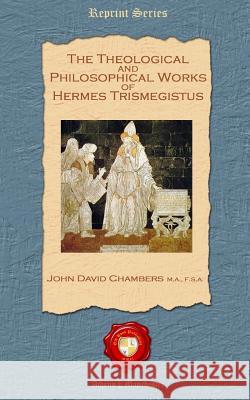The Theological and Philosophical Works of Hermes Trismegistus » książka
The Theological and Philosophical Works of Hermes Trismegistus
ISBN-13: 9781781070512 / Angielski / Miękka / 2011 / 208 str.
The Hermes Trismegistus of legend was a person, an Egyptian sage or succession of sages, who, since the time of Plato, has been identified with Thoth, the reputed author of the "Ritual of the Dead," or, as styled in Egyptian phraseology, the "Manifestation of Light" to the Soul, who through it declared the will of the Gods and the mysterious nature of Divine things to Man. This Hermes - and there was but one among the ancient Egyptians - was worshipped as a god. Tertullian says, "In ancient times most authors were supposed to be, I will not say god-like, but actually gods; as, for instance, the Egyptian Hermes, to whom Plato paid very great deference." Clement of Alexandria gives a detailed account of his works, forty-two in number - four of astrology, others of astronomy, geology, and hieroglyphics, and thirty-six of philosophy, hymns to God, religious ceremonies, and sacerdotal dissipline. He was most fully imbued with every kind of learning, so that the knowledge of many subjects and arts acquired for him the name of "Trismegistus." Hermes must have been a Greek living at Alexandria, subsequently to Philo Judaeus and Josephus, in the end of the 1st and beginning of the 2nd century; who assumed the name of Hermes in order to give greater weight to his teaching. Many, including early church fathers and editors of Hermes, may have been misled as to his great antiquity by the hieroglyphical representations of him; but the facts that the use of these characters lasted in Egypt down to the tenth year of Diocletian at the least, and that, the ordinary writing on papyrus in the National Library at Paris, some of which is entirely in Greek is not earlier than the times of Nero, refute their suppositions. It is quite impossible that an author who shows an intimate acquaintance with the phraseology of Plato, with the Hebrew Scriptures as extant in the Septuagint version, who reproduces the language of the Sermon on the Mount and of the Gospel, Epistles, and Revelation of St. John, and of St. Paul, can have flourished at so early a period. Many of the works of Hermes are probably still entombed in the libraries on the Continent; but those which have come to light, and are translated, are most remarkable and of very considerable importance, since they are the only treatises we possess of the kind belonging to that epoch.











